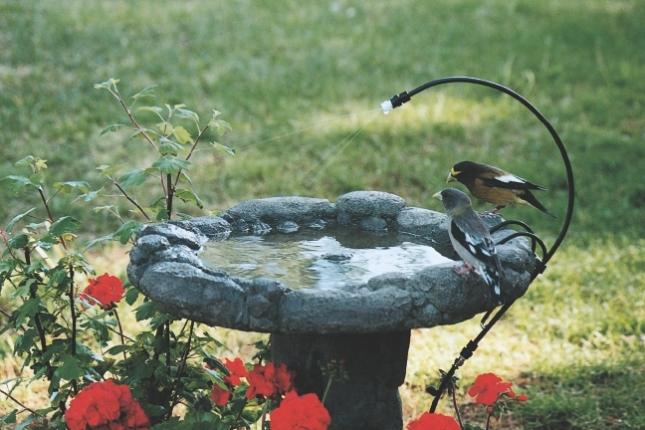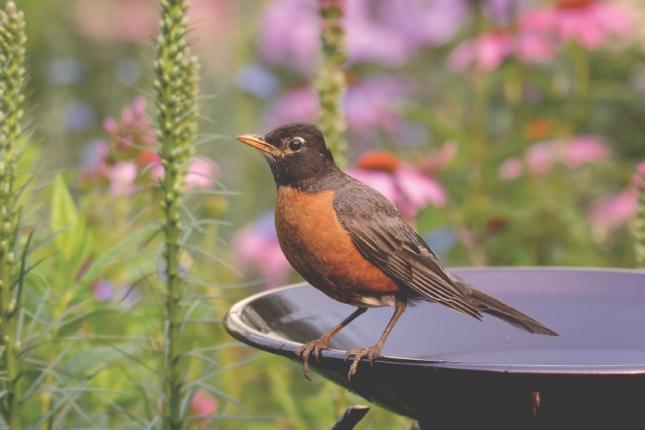Birdbaths & Accessories
Birds use baths both for drinking and for bathing. Almost every species of bird in your yard will visit a birdbath, including both the common feeder-visiting birds and other birds that rarely or never visit feeders. Water is required in different ways by every bird regardless of feeding preferences! Many also accommodate accessories such as our WBU Water Wiggler. Offering your backyard birds a source of open water in your yard will enhance your enjoyment of backyard birds.
Birdbaths come in many styles and shapes. Some are shallow and slope gradually into the middle which makes birds feel comfortable when bathing, some baths are simply dishes set on the ground, while others stand on pedestals, attach to deck railings, or can be hung. Your choice of bath will have some effect on the birds you attract: very small baths will discourage large birds; lower baths will be visited more often by ground-feeding birds such as sparrows and towhees. Choose a shallow basin to allow small songbirds to bathe in your bath. If the dish is too deep, stones placed in the bath may encourage smaller birds to bathe or drink safely. In general though, almost any bath that isn’t obviously too deep will attract birds—get whatever works in your yard!
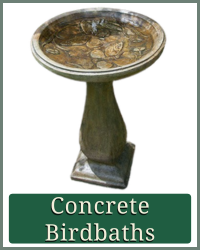

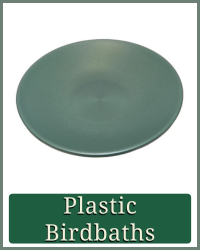
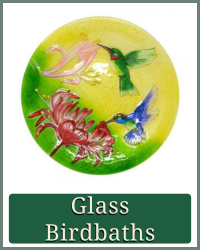

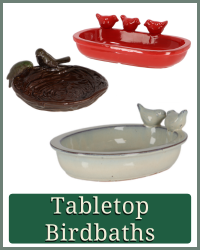

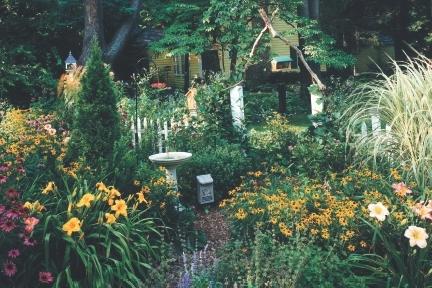


Decorative vs. Functional
What is functional can also be beautiful! While there are absolutely bird baths out there that are more a treat for the eyes than the birds, we take pride in being able to offer you a nice selection of baths all throughout the spectrum of "decorative to functional". Want small birds to feel at home with a pop of colour? Take a look at our glass bird bath dishes! Need to accommodate larger or unruly birds in a high-traffic area? Concrete or metal pedestal baths might be just what you're looking for. What about options for those with balconies? There's way more than you might think!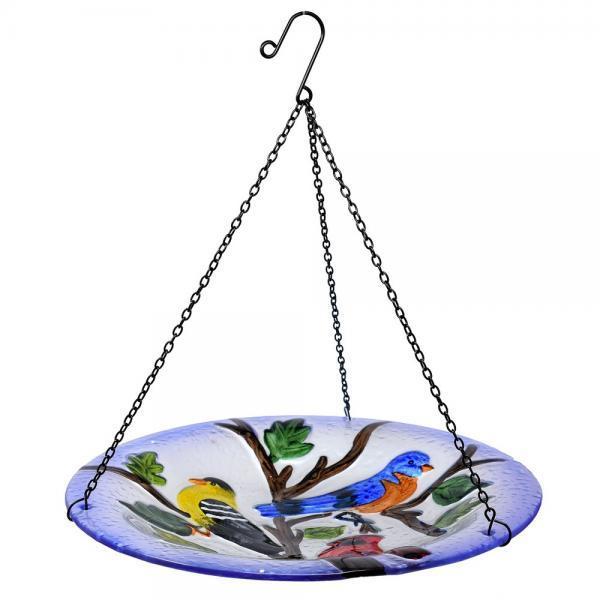
Through thoughtful choices of materials such as glass, ceramic, metal, concrete, and plastic, we can tailor our recommendations for you to your specific needs. What does an eye-catching and functional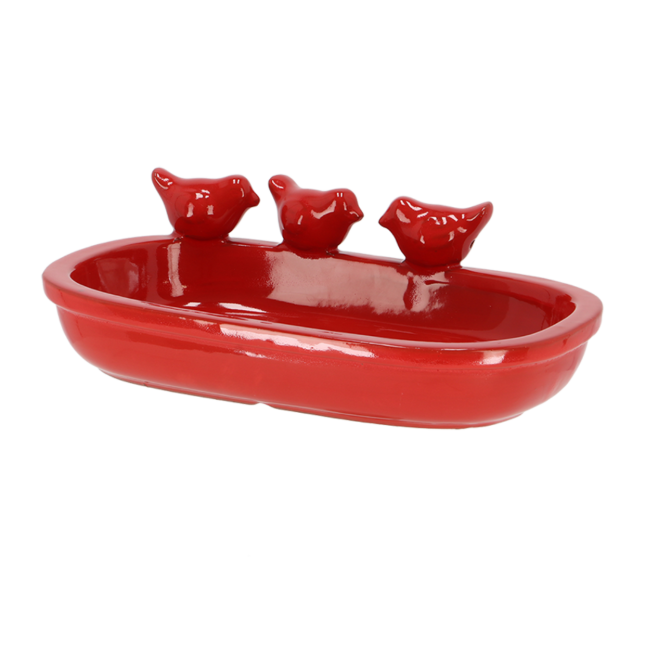 bird bath setup look like for your garden? Tell us your vision and let us help you bring more birds to your yard!
bird bath setup look like for your garden? Tell us your vision and let us help you bring more birds to your yard!
Caring For Your Birdbath
The water in your birdbath should be replaced every few days, with your exact frequency depending on usage, other sources of litter (i.e. overhanging trees), and water capacity (during summer heat, very shallow dishes may need to be refilled every day). If practical, giving your bath a quick rinse with your garden hose before each refilling will go a long way towards keeping it clean. When more serious cleaning is needed, the next step is to use a hard-bristled scrub brush (right) to remove grime before rinsing and refilling. This should be adequate for most cleaning; on occasion you may wish to apply a specialty bird-safe birdbath cleaning product, or a low concentration (10% or less) bleach solution before scrubbing.
Just like keeping your feeders clean is important to prevent the spread of disease, keeping your baths clean is equally as important to keep your birds healthy.
Also important to keep in mind that most metal, glass, concrete or ceramic birdbaths are too fragile to leave outdoors all winter (even with a birdbath heater) and are best taken indoors and covered during the winter months.
With proper care a birdbath will give you and your birds many years of enjoyment. While metal, ceramic and concrete birdbaths can withstand sun, rain and wind beautifully, freezing weather is its main enemy as you risk damage to the bath if water freezes in it.
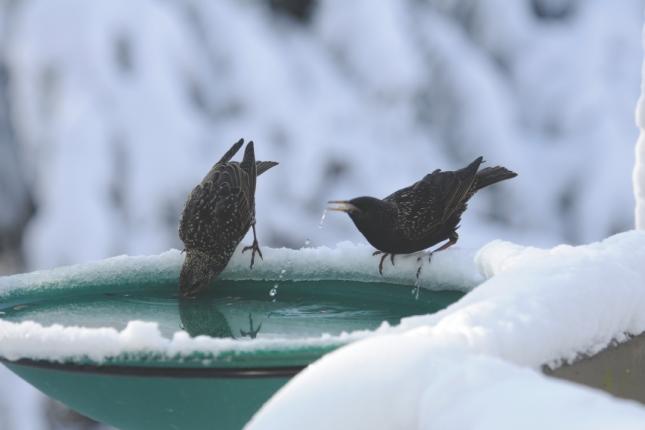

To protect your bath in freezing weather please take the following precautions:
- You can play it safe. Clean and drain the bath and bring your bath indoors (a shed or garage would be suitable) where it will be dry.
- Or you can drain and clean the bath and cover it (with a tarp or something similar) so that water won’t collect in it over winter.
Our metal and clay birdbaths are compatible with our WBU Birdbath De-icer, which allows you to heat the birdbath and keep open water available for the birds during the colder months. However, before purchasing a deicer we ask you to carefully consider how you will clean and fill the bath during the cold weather. Heated birdbaths do require regularly monitoring and filling, approximately 3 times per week or more, depending on how cold it is. The colder the temperatures, the faster water will evaporate from your birdbath. With hoses away for the winter this means that filling and cleaning requires you to tip the birdbath over to get rid of old water, and a container of water to refill the bath. Metal, clay, and especially concrete birdbaths are large and heavy and may be difficult to tip in winter if they become frozen in place or there is a lot of snow. For all of these reasons and for ease of cleaning and filling, we suggest using a plastic birdbath with a heater during the colder months and your large and/or heavy bath during the warmer months.
Note: Glass Birdbaths are not as durable as metal, ceramic and concrete birdbaths and should be taken in during the colder months to prevent shattering.


